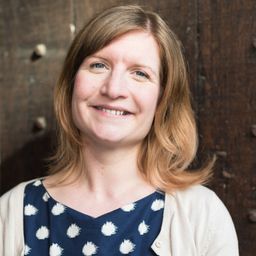
Sessions in which Laura Crossley participates
Saturday 4 June, 2016
Sessions in which Laura Crossley attends
Monday 6 June, 2016
The Manifesto of the Association for Critical Heritage Studies (2011) argues for a more critical approach to heritage: heritage from below, writ large, in service of society. The integration of heritage and museum studies with those of community, development, memory, planning, public history and tourism is urged in the Manifesto, as is opening up to other disciplinary traditions such as anthropology, political science and sociology, for dialogue and collaboration on external research and poli...
Involving communities, visitors or the public is frequently presented as one of the major tasks of museums and heritage sites in current global movements toward new collaborative paradigms (Golding and Modest 2013; Watson and Waterton 2011). Co-production is a highly current issue, and a proposed emancipatory solution to the authorized heritage discourse, which seemingly has reached a critical juncture. Scholarship has echoed calls from communities for more direct involvement in the presentat...
Tuesday 7 June, 2016
We would like to propose a session, building on the one we ran at the 2014 CHS conference in Canberra, on how emotion and affect feature in the fields of heritage and museums studies, memory studies, public history, heritage tourism, studies of the built and urban environment, conservation, archives and any field of study that deals with the emotional impact and use of the past in the present. There is an increasing interest in how emotion is a form of judgement on things that affect ou...
Involving communities, visitors or the public is frequently presented as one of the major tasks of museums and heritage sites in current global movements toward new collaborative paradigms (Golding and Modest 2013; Watson and Waterton 2011). Co-production is a highly current issue, and a proposed emancipatory solution to the authorized heritage discourse, which seemingly has reached a critical juncture. Scholarship has echoed calls from communities for more direct involvement in the presentat...
What is the future of the UK and what is the role of heritage in this shifting political landscape? How have debates on heritage in the UK changed since the influential critiques of Hewison and Wright in the 1980s? How can those engaged in Critical Heritage Studies in the UK negotiate the difficult relationship between academic critique and sector relevance? How do current debates in the UK relate to and differ from those in Western and non-Western contexts? This workshop will bring ...